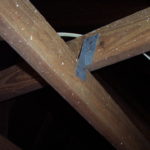
cape coral home insurance
When looking at home Insurance companies and polices, here are a few things to look at and ask your agent about. The more you know about your coverage, the easier it is to find the Cape Coral home owners Insurance quotes on coverage that works best for you. Deductibles – Here in Florida, home insurance policies have two deductibles. Policies will have a deductible for hurricanes, and a separate deductible for all other covered losses. It is important to know what your deductibles are for both your hurricane and non-hurricane parts of the policy. Pool Cages – Does your carrier offer coverage for pool cages, and if so do they charge extra for pool cages? A lot of companies won’t cover pool cages, so it is important to know whether the company you have offers, or doesn’t offer, coverage. In regards to hurricanes, pool cages are a common loss, and they can cost between $15,000 to $50,000 to replace.- Sewer Backup (often a common claim) – Most companies will add the coverage for an extra amount. What is the cost?
- Animal Liability (dogs biting) – Will the carrier offer the coverage, and what dogs will they not allow?
- Scheduling Personal Property – Can you add increased coverage for things such as jewelry and guns, and if so what is the cost?
- Secondary Residence – Does the carrier write a home that is a secondary residence?
- Tenant occupancy – Does the carrier offer coverage if the home is tenant occupied?
- Flood is always a separate policy, so it is important to know how much flood insurance is going to cost. Also if you have a loan banks may require that you carry flood insurance.?
The Benefit’s of using an Independent Insurance Agent
Other Home Insurance Services We Offer
Florida Condo Insurance
There are a great deal of advantages to living in a Condominium. There’s less home maintenance (no grass!) and simple access to social luxuries. Also remember: an individual condo insurance policy should have protection for your personal things, better known as contents.
Florida Landlord Insurance
When looking for landlord insurance, this policy is known as a dwelling fire policy. They are for people who own a property and rent it out to a tenant.
How much coverage do you need for your home?
Your home may be the most valuable investment you have made so far, and any wise investor takes certain measures to protect their investment. Though not required by law, homeowners insurance and coverage protects your investment in case disaster strikes. To determine...
What are the Risks of Not Having Insurance on Your Home
Mortgage owners are legally required to have homeowner’s insurance. The purpose of cover is to provide financial protection if home loan owners fall back on repayments owing to the passing of a property owner, job loss, disability and listed standards. It is becoming...
Common Standard Home Insurance Coverage’s
- Fire or Lightning
- Hurricane
- Windstorm or Hail (other than hurricane)
- Explosion
- Riot or Civil Commotion
- Aircraft
- Vehicles
- Smoke
- Vandalism or Malicious Mischief
- Theft
- Mold
- Falling Objects
- Weight of Ice, Snow or Sleet
- Accidental Discharge or Overflow of Water or Stream
- Sudden and Accidental Tearing Apart, Cracking, Burning or Bulging Freezing
- Sudden and Accidental Damage from Artificially Generated Electrical Current
- Volcanic Eruption
- Catastrophic Ground Failure
Optional Home Insurance Coverage’s
- Animal Liability — Excluded unless added –Ex dog bite
- Pool Cages – Most companies Exclude unless added. Some companies cover cage but not screens. Will carrier give you Replacement Value or Actual Cash Value
- Personal Property Covered for Replacement Value. — Make sure personal property is covered at Replacement Value Not Actual Cash Value.
- Mold — $10,000 Standard – Inexpensive to increase
- Water or Sewer Back up — Excluded unless added
- Golf Cart Coverage
- Personal Property theft limitation — Applies to Jewelry, Silverware, and Art. Coverage for these items can be increased; this is called “Scheduling”, and requires an appraisal.
- Sinkhole Coverage — Catastrophic Ground Coverage vs. Sinkhole Coverage — Catastrophic Ground Coverage is automatic coverage and is Abrupt falling of home. Sinkhole is better coverage and covers slow sinking over time. Most companies require a $150 inspection paid by the insured, to examine property for any settling cracks prior to allowing coverage.
- Identity Theft
Important to Know About Homeowners Insurance
- Home Insurance Two Deductibles
- Sinkhole Vs Catastrophic Ground
- Save on Home Insurance
- Personal Property Special
One is for hurricane, the other is for all other covered losses.
Hurricane Deductible – This is usually 2% (Of Coverage A) (Dwelling amount). In Florida if your home has a loss from a hurricane the minimum deductible you can have is 2% of your Coverage A. In Florida the hurricane deductible is an annual deductible. So if you have 2 or more hurricanes that cause damage to your home during the year, you will only pay one hurricane deductible.
Example Hurricane Deductible – Your home is insured for $250,000 replacement value (Coverage A). 2% of $250,000 = $5,000 hurricane deductible. So the higher the replacement value of your home the higher your hurricane deductible will be.
All other Perils Deductible (AOP) – Usually $1,000, $2,500, or $5,000. – If you have a $1,000 deductible; this means you would pay the first $1,000 of a loss. Note this deductible applies to any claim made against your home insurance that is a covered loss, and isn’t a hurricane loss.
Summary – In regards to a Florida homeowners insurance policy, there is always going to be two different deductibles. It is important to understand this because when comparing Home Insurance, the deductibles effect the insurance premium.
Sinkhole Vs Catastrophic Ground Coverage Collapse
All FL Home Insurance policies automatically have Catastrophic Ground Collapse Coverage. Sinkhole is a little more extensive coverage, and can be added as an endorsement to the home insurance policy. Sinkholes are rarer in North and South Florida. Sinkholes occur much more often in Western and Central Florida. They are particularly common in Pasco, Hernando, Citrus, Marion, Seminole, Polk, and Lake Counties. Sinkholes are void pockets of land underground. These void land pockets sometimes give underneath causing collapse of the ground above. These ground collapses can range from mild or small (few feet), to extreme (size of a home or larger). Obviously if the ground below your home collapses your home insurance needs to cover it.
Catastrophic Ground Coverage Collapse –Under Florida law, catastrophic ground cover collapse includes geological activity resulting in the following:
1. Abrupt loss of ground cover
2. A depression in the ground clearly visible to the naked eye
3. Structural damage to the building, including the foundation
4. Government condemnation of the insured structure and an order to vacate the premises
Sinkhole coverage is more extensive and doesn’t require that the depression be visible or that the property must be condemned. Insurance
Companies have become sensitive to Sinkhole coverage, because of the abuse of coverage by a very small portion of home owners. Homes in Fl after being built often sometime settle into the ground causing small cracks in sidewalks, swimming pools, and sometime a home’s foundation. Although these cracks look bad cosmetically they are not threatening to the home’s structure. Companies usually will offer the Sinkhole coverage for $25 to $100 a year, so the coverage isn’t expensive. But most companies will require an inspection, usually a cost to the insured, to inspect that there are no existing cracks anywhere on the property, and the inspection checks to make sure no potential sinkholes exist through scientific equipment.
How to Save on your Home Insurance
Mitigation Inspection An inspection that shows how your home was built, in regards to how it is protected against hurricanes. Almost all homes have been built to hurricane building codes. All companies are required to offer insurance premium credits based on this inspection. Cost is $95, usually saves $300 to $1,000’s of dollars on insurance. This inspection is extremely important for homes built prior to 2001. Homes built prior to 2001 get no premium credits without the inspection, and almost all homes will receive some credits for mitigation. Not as important for homes built 2002, and newer. These homes automatically get mitigation credits, because of the standard building codes all homes needed to be built to. The only credit available with the inspection is the hurricane shutter discount. The hurricane shutter discount is usually around $100 to $150. In order to get the hurricane shutter discount all doors and openings must be protected with hurricane rated shutters, and garage doors. Often homes fail to get the credit because of the garage door. The garage door usually meets code, but doesn’t have a Hurricane Rating Sticker. So if there is no proof of the garage doors rating inspectors won’t check off the discount on the inspection. Inspectors are required to show picture proof of everything they check off on the inspection. The Two Largest Insurance Premium Credits Are Seen Inside The Attic The largest insurance premium credits are seen from inside the attic of a home. The plywood deck has 3 different options to how it is nailed or stapled to the roof trusses. On the inspection this is called Roof Deck Attachment (part 3) The other largest insurance premium credit is Roof to Wall Attachment (part 4), again seen from inside the attic. Almost all homes have either Hurricane Clips or Hurricane Straps. Both are large savings on insurance, but not discounted on home insurance policies without the inspection. Summary: If your home is built 2001, and older this $95 inspection will most likely save you hundreds to thousands of dollars on your insurance premium. Personal Property Special Theft LimitsOn most home insurance policies these are usually the limits:
1) $200 on money, and securities.
2) $1,000 for Theft of Jewelry, Watches, furs, or precious stones.
3) $2,500 for loss by Theft of silverware, goldware.
4) $2,500 for property on the residence used for business purposes.
5) $2,000 for loss by Theft of firearms.
Again some homeowners insurance polices with differ a little, but they all have some limitations for certain items, and for the type of loss. The key to most of these limits is Theft. Companies have a hard time determining what people really may have had or not have had at the time of a theft loss, so limits often are set for a theft loss.
If you have high value items, and need them covered for theft, you would then need to schedule them. Scheduling means you get your item (s) appraised, and then the insurance company will then most often cover your items for the appraised amount.
Ex – Often married women have extensive wedding rings. Having them appraised and scheduled is highly recommended. If something then happens to the ring at home or away from the home coverage is then able to be obtained.
Ex – Gun collections. Having guns appraised and scheduled allows for high value items to receive coverage at home, and away from home.
Increasing Mold Coverage Limit
A $10,000 limit is standard on a property insurance policy in Florida. See example claims scenario’s to see how increase coverage limits works.
Read More >>
Homeowners Tips
A few simple tips for lowering your home insurance rates. Also some claims scenario’s to watch our for regarding dogs, and vacant rental properties
Read More >>
Summary

Service Type
Area
home insurance
Provider Name
Halbrehder Family Agency,
Cape Coral, FL 33909
DescriptionOur agency located in Cape Coral and Fort Myers, FL offers home insurance. Learn how to shop and compare homeowners insurance on our website.




